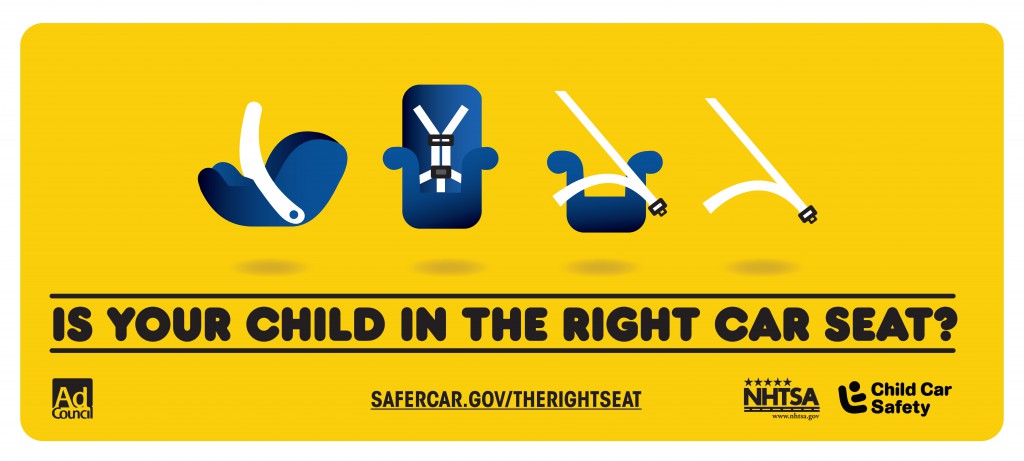It is the responsibility of the supervising adult to ensure that any child under 5 years old is seated in a federally-approved child car seat. Failure to do so could result in a $60 fine and 3 points against your driver’s license.
Florida law states:
- Children 5 years old or younger must be secured in a federally approved child restraint system.
- Children 3 years old and younger must use a separate car-seat or the vehicle’s built-in child seat.
- Children 4 to 5 years old must sit in either a separate car seat or a built in child seat.
Use the following car seat guidelines from the FLHSMV while driving with a child in your vehicle.
- Birth – 1 year old and at least 20 lbs.
- Use a rear-facing child car seat in the back seat of the car.
- 1 year old and 20 lbs. – 4 years old and 40 lbs.
- Use a rear-facing child car seat in the back seat until they outgrow the weight and height limit of the child car seat.
- Normally when children are over 1 year old and weigh over 20 pounds, you can switch to a forward-facing car seat in the back of the car.
- 4 years old and 40 lbs. – 8 years old or 4’9″ tall
- Use a forward-facing child seat in the back seat until they reach the weight and height limits recommended by the manufacturer.
- Switch to a booster seat in the back of the car.
- 8 years old or 4’9″ tall –12 years old
- Use a booster seat in the back seat until your child is big enough to use the car’s seat belt.
- At 13 years old, your child can sit in the front seat of your car.
For more information, please check out the Florida HSMV’s safety brochure on child safety seats.
Never put your child in a child car seat in the front of a vehicle with a passenger air bag. It is always safest for your child to ride in the back seat.
Latest posts by verovine (see all)
- Vero Vine Top 9 Lunch Spots in Fort Pierce - January 16, 2018
- Vero Vine Top 9 Lunch Spots in Sebastian - September 18, 2017
- Indian River Rocks Photo Contest Winners - May 3, 2017

